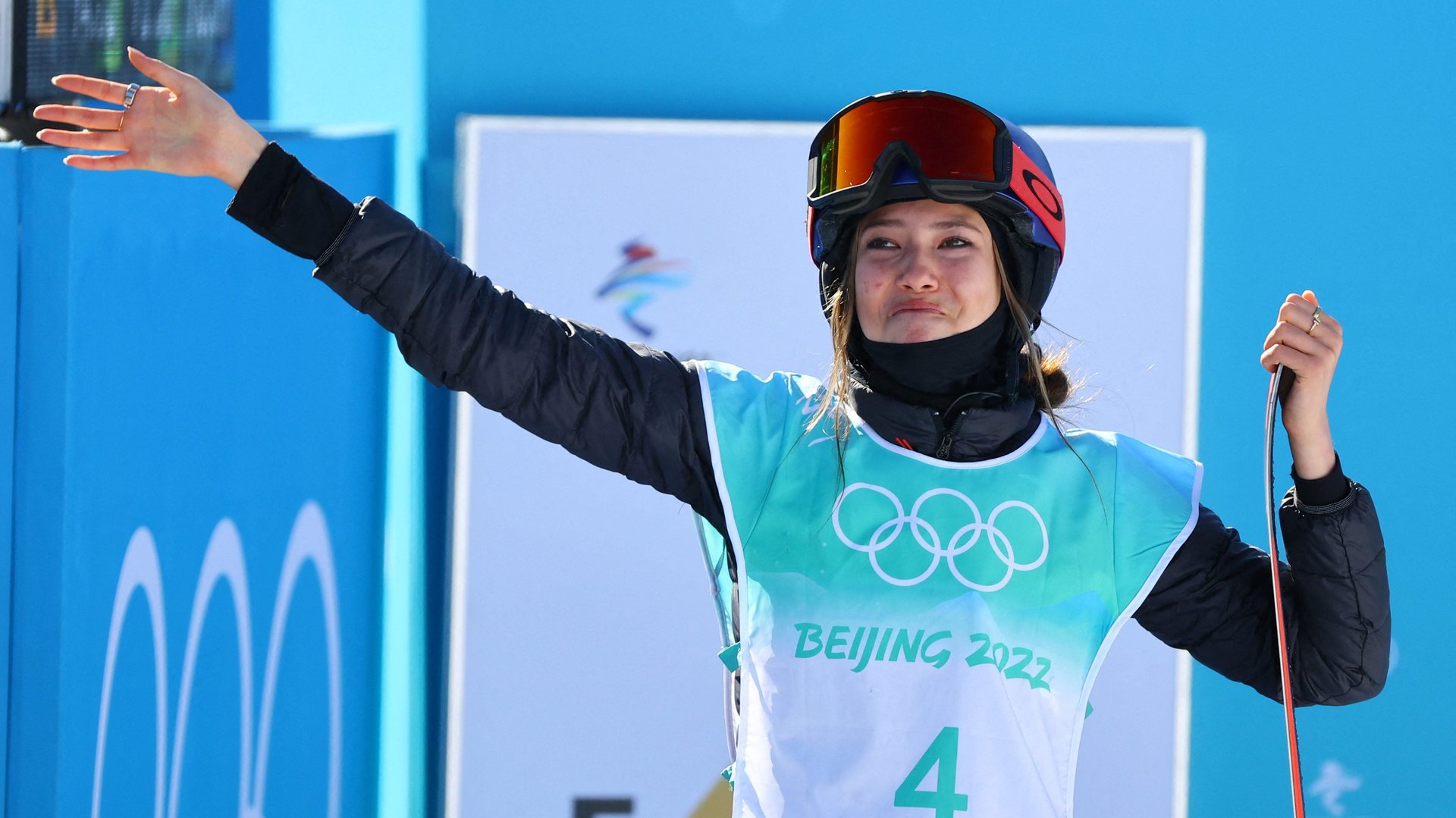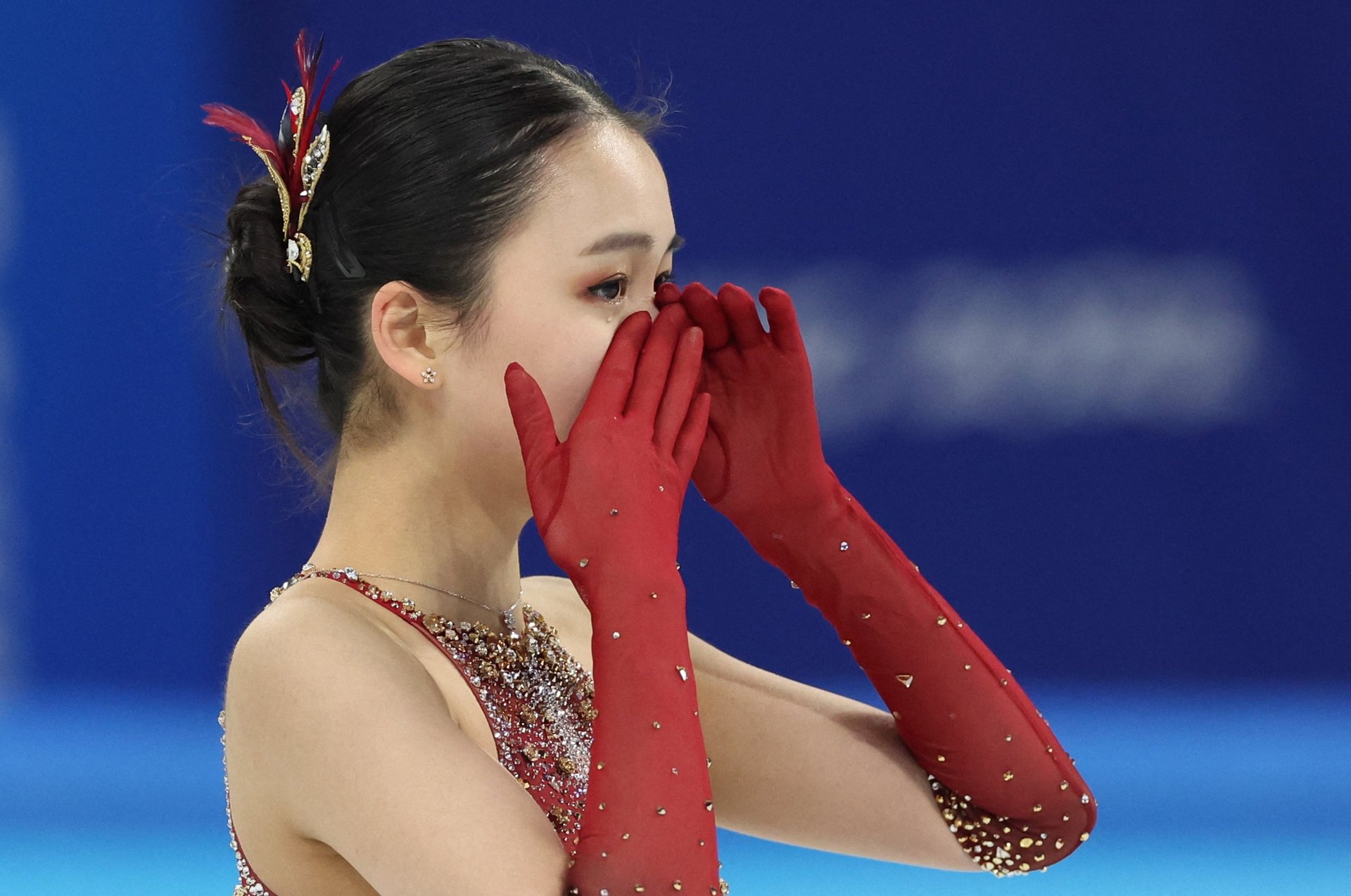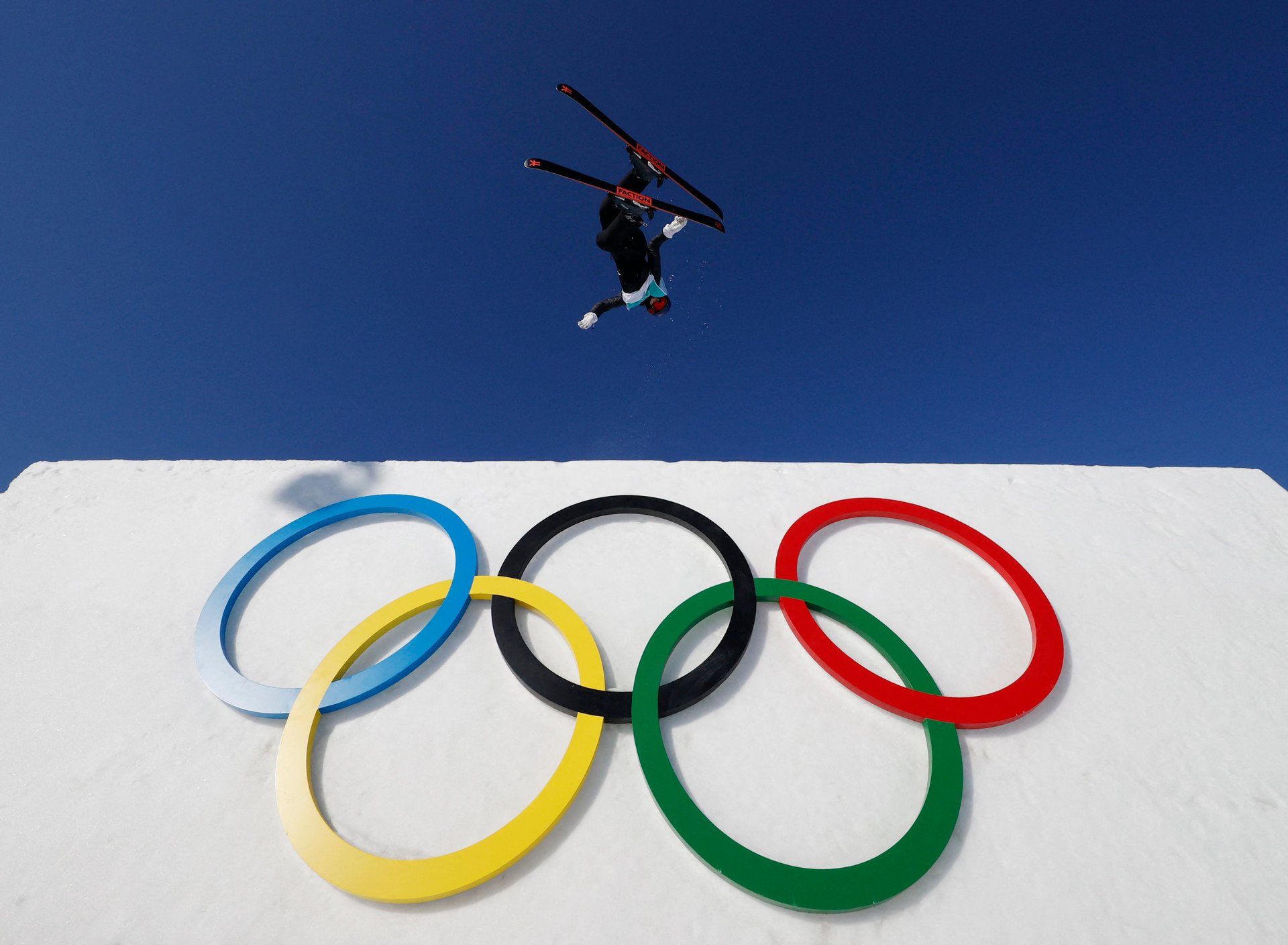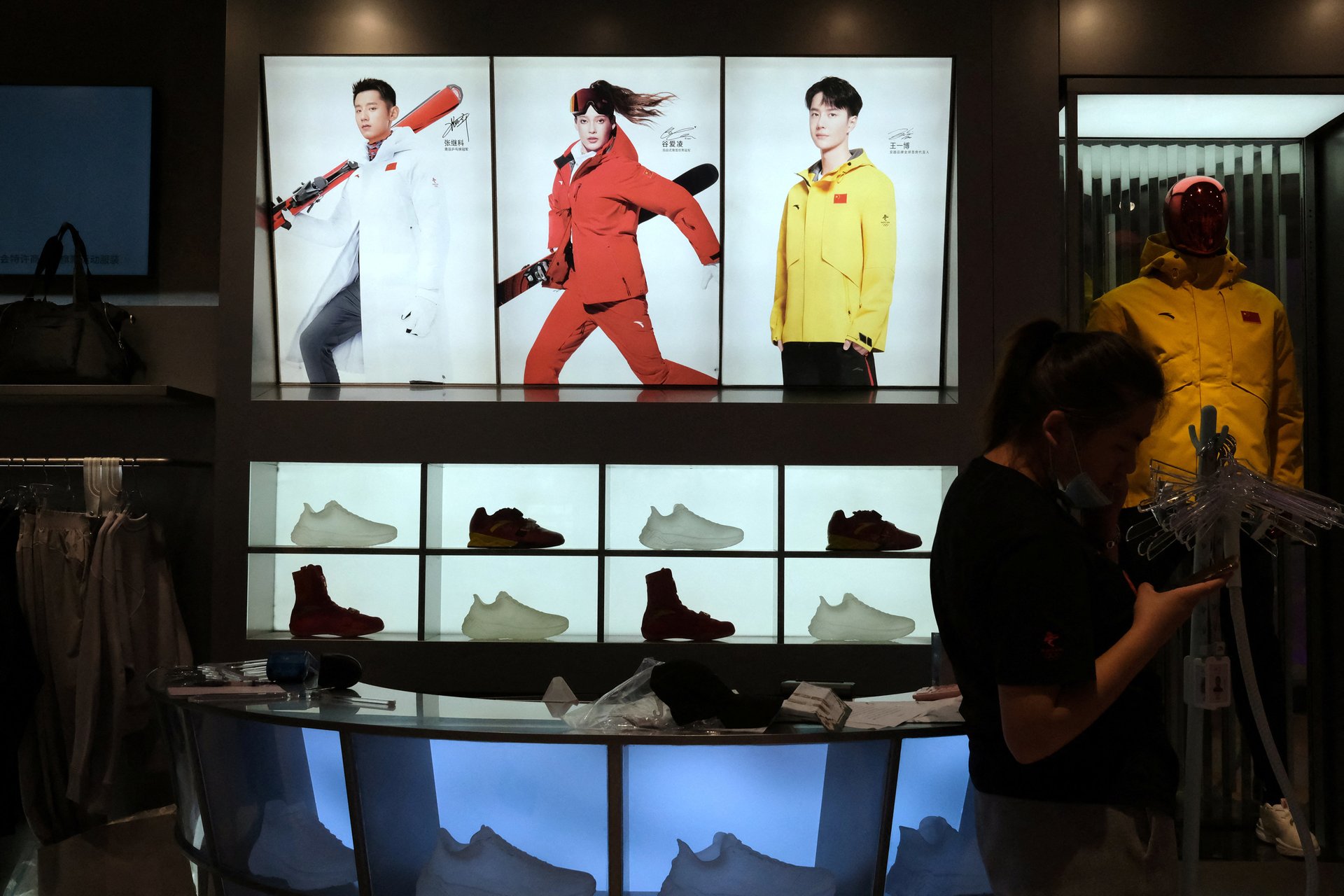The disdain in China for US-born skater Zhu Yi is a stark contrast to the love for Eileen Gu
US-born freestyle skier Eileen Gu was already the focus of adulation in China even before the Beijing Winter Olympics started. On Tuesday, Gu, who chose to compete for China rather than the United States, won her first Olympic gold medal, sending the admiration into overdrive.


US-born freestyle skier Eileen Gu was already the focus of adulation in China even before the Beijing Winter Olympics started. On Tuesday, Gu, who chose to compete for China rather than the United States, won her first Olympic gold medal, sending the admiration into overdrive.
Gu’s victory prompted an ecstatic celebration on Chinese social media, where most trending topics today are about her win in the women’s big air skiing competition. The hashtag #EileenGuwinsgoldmedal has been viewed nearly 700 million times on Weibo, while a post from state broadcaster CCTV news praising her as “the most extraordinary” received over 1.5 million likes.
Almost everything about Gu, who is known as Gu Ailing in China, is viewed in a favorable light by the Chinese public, whose compliments about her range from how she took time to console French rival Tess Ledeux at today’s competition to her nail polish pattern that looks like the Olympics rings.
“She is a girl blessed by God, perfect in every aspect,” said a user on the Chinese lifestyle app Xiaohongshu, under a commentary about how beautiful Gu’s hands are.
Harsh judgment for figure skater Zhu Yi

If Gu, who is also a fashion model and on her way to study at Stanford, has been cast as China’s ideal daughter in these Olympics, another US-born athlete competing for China is experiencing the far harsher side of the country’s complex attitude towards the naturalized Chinese citizens who are helping the country raise its medal tally at the Winter Games.
California-born figure skater Beverly Zhu, who goes by Zhu Yi in China, has faced endless criticism after she finished last during the women’s short program team event on Sunday. Her stumble in the Sunday event turned into a heavily viewed hashtag, #ZhuYifelldown, and Zhu has said that the online reaction played a role in her performance in the free skate event on Monday, when she fell twice, and then broke down in tears. “What everyone said on the internet really affected me,” Zhu told state news agency Xinhua.
Zhu renounced her US citizenship in order to compete for China during the Games, which would normally be praised as an act of great patriotism. Instead, the 19-year-old has been slammed by many internet users as a “giant baby” for her tears in the competition. Others have accused Zhu of snatching away a Chinese-born skater’s slot to compete in the Games thanks to her scientist father’s connection with the government, though there is no information to suggest this is the case. Yet others say she’s too much of a “rookie” to participate in the Games.
While Weibo appears to have tried to control the abuse against Zhu by censoring some hashtags, many users have continued to comment that they are upset about Zhu’s performance. “Is Zhu going to continue competing in the Games? Please give herself and us a break, otherwise, we will collapse,” said an internet user, whose comment got over 1,000 upvotes.
After Zhu faced growing online vitriol, some official voices have shown support for her. Hu Xijin, the former editor of state-owned tabloid Global Times, urged people not to direct their frustration against young athletes when they make mistakes. “Online abuse is excessive no matter what…Some people’s slam of Zhu is brutal and unnecessary,” he wrote on Weibo on Sunday.
Eileen Gu, “China’s prodigy”

In different ways, the attitudes towards Zhu and Gu illustrate the enormous pressure the Chinese public puts on athletes representing China, regardless of their origins. During last year’s Tokyo Olympics, the Chinese mixed doubles table tennis team made a tearful apology for winning a silver medal after they lost in the finals to Japan, which has long been a primary target for nationalists in China. The team was still accused by many online of having failed their motherland.
“Nothing succeeds like success. Gu is winning one gold medal already…China only had one gold medal from the last Winter Olympics, but it already has three currently. So of course, Chinese people, whether they are nationalist or not, are going to appreciate [Gu’s success],” said Dali Yang, a professor of political science at the University of Chicago. Unlike Zhu, Gu competes in fields in which Chinese athletes have not traditionally competed or done well, so many in China see her as bringing fresh glory to China, Yang told Quartz.

While Gu is a stronger athlete than Zhu, she also seems to have ticked more boxes that contributed to her greater popularity in China. Gu graces billboards in China as a model, where her biracial appearance stands out, and has appeared in campaigns for luxury brands like Louis Vuitton. Many of her followers highlight her biracial background admiringly, calling her a “biracial beauty,” while others have uploaded tutorials on how to wear makeup to look more like Gu, with “biracial vibes.” Added to that Gu speaks fluent Chinese, while Chinese feminists like the fact that she uses her mother’s last name. Zhu, whose spoken Chinese appears to be less fluent than Gu’s, meanwhile has been criticized for not learning the language properly.
“There are very few [role] models of Chinese descent who can play the role that she [Gu] offers for Chinese youth,” said Yang.
On Twitter, Chinese diplomats and institutions joined the surge of nationalistic pride over Gu, eliding over the fact that she represents a blend of American and Chinese culture. For many, she is China’s “prodigy” alone, as Zhao Qinghua, China’s consul general in Zurich, referred to her.
The different treatment toward her fellow athlete appears not to have gone unnoticed by Gu, who at a press conference today said she hoped people would show more understanding for the skater, adding that Zhu “wants to have a good performance more than anyone else.” On Instagram, she also responded to an Insider story about the online attacks against Zhu to say that 90% of comments on Chinese social media platforms are “positive and uplifting.” Of course, that has won her even more praise (link in Chinese) from state media and internet users, who say Gu has stood up firmly against biased western media outlets.